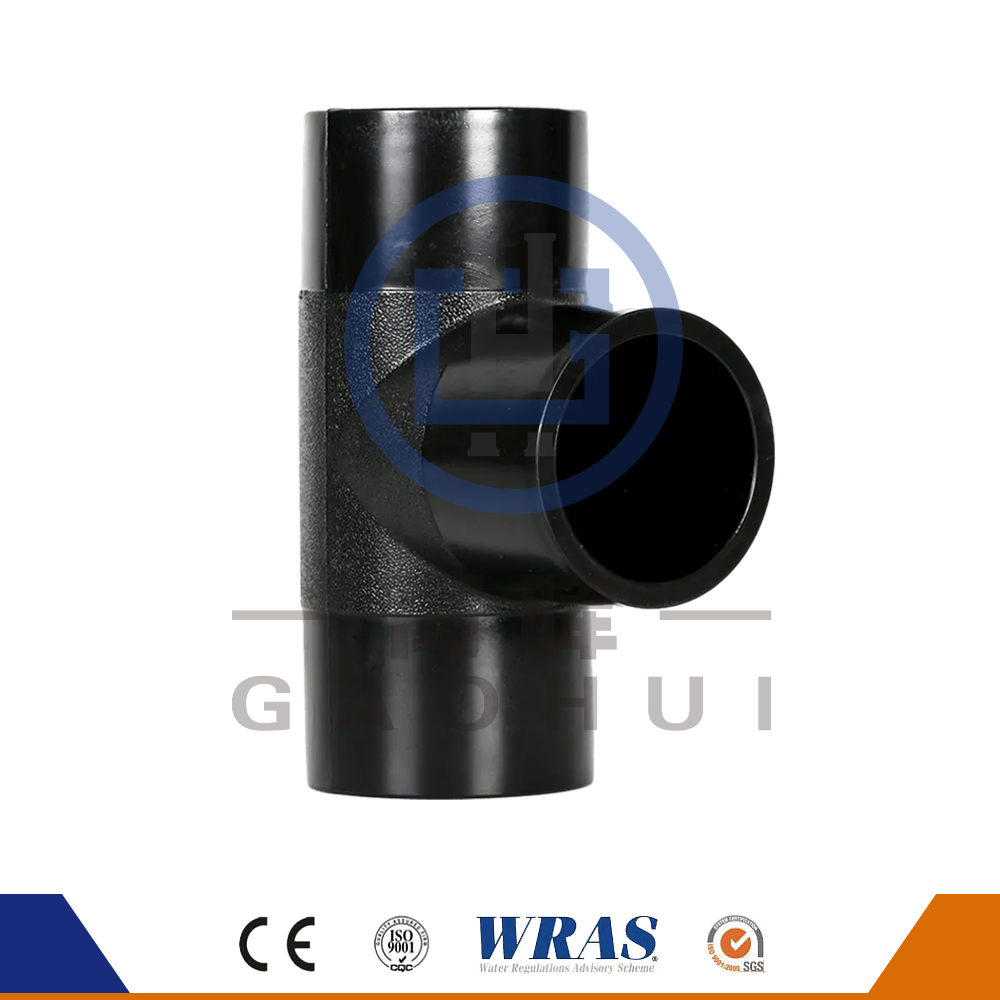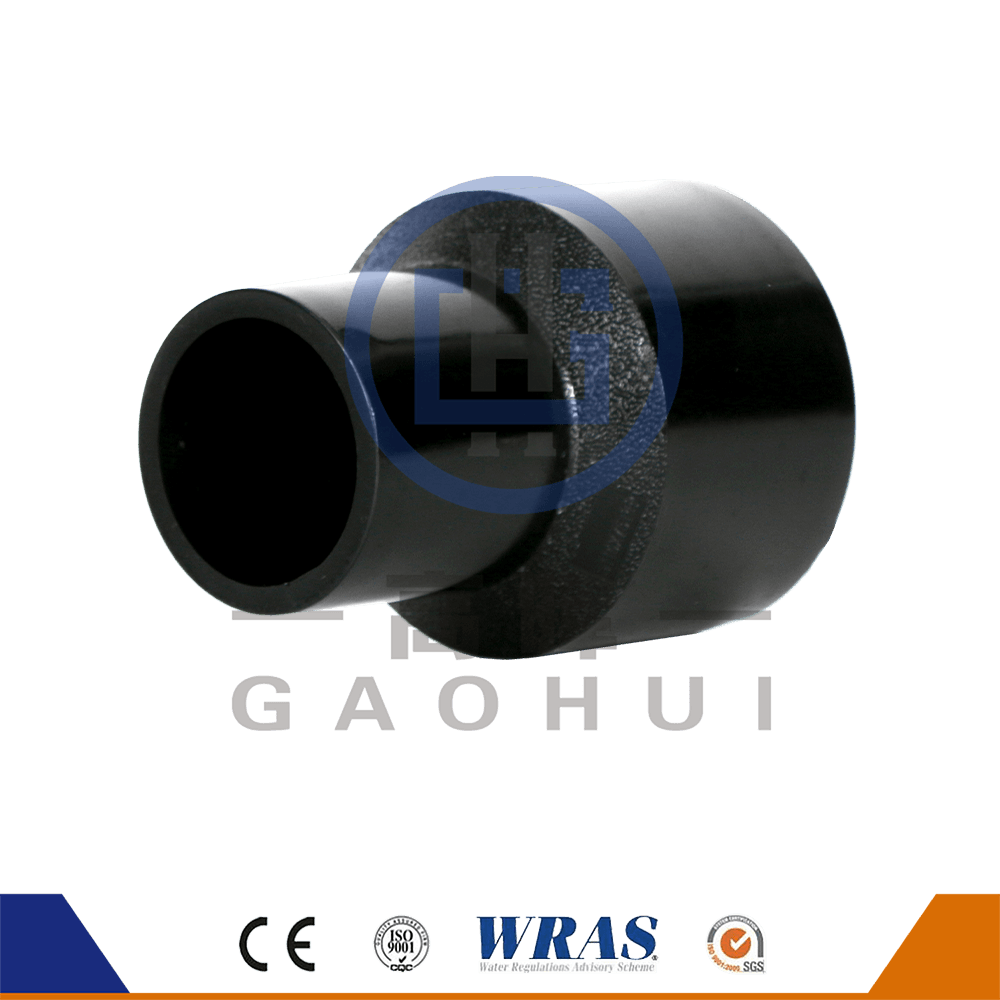Content
With the continuous advancement of global infrastructure, especially in industries such as water treatment, chemicals, power generation, and oil and gas, the safety, stability, and efficiency of pipeline systems are becoming increasingly stringent. While traditional metal pipe connection methods have accumulated rich experience over a long period of use, they are now exposed to some significant shortcomings in response to emerging demands. In recent years, the widespread use of HDPE thread fittings has not only effectively addressed many of the shortcomings of traditional metal fittings but has also revolutionized pipe connection methods through their superior performance. Their significant advantages, particularly in many industries, have been highlighted.
Core Advantages of HDPE Thread Fittings
HDPE thread fittings are made of high-density polyethylene and utilize a threaded connection. They offer multiple advantages, including light weight, corrosion resistance, easy installation, and resistance to high temperatures and high pressures. Traditional metal pipe fittings often rely on welding or bolting. While these methods have had some application value in the past, with the increasing complexity of pipeline systems and the increasing demand for safety and environmental protection, HDPE thread fittings are gradually becoming the mainstream choice.
1. Strong Corrosion Resistance: HDPE is resistant to most chemicals and is suitable for use in a variety of corrosive environments, including chemicals, sewage, and seawater.
2. Easy Installation: HDPE fittings require no welding for installation, utilizing standard threaded connections, saving significant time and labor costs.
3. High Pressure and Vibration Resistance: HDPE's high pressure resistance and excellent flexibility enable piping systems to withstand high pressure and external vibration.
4. Environmentally Friendly: HDPE is a recyclable material, meeting environmental standards and having minimal environmental impact during use.
Wide Applications
Due to their outstanding performance, HDPE thread fittings have been widely used in various industries, demonstrating their irreplaceable role in these fields.
Water Treatment and Water Supply Piping Systems
Globally, water treatment and supply are among the most fundamental and critical public utilities. Water quality safety and stable water supply are fundamental to ensuring public well-being and industrial production. Traditional metal pipes are susceptible to corrosion when exposed to water for long periods of time, leading to pipe degradation and leakage, which in turn impacts water quality and the stability of the water supply system. HDPE thread fittings effectively address this issue. Due to their exceptional corrosion resistance, HDPE effectively prevents corrosion from dissolved substances in the water, ensuring the long-term stability of the water supply system.
HDPE fittings are also extremely convenient to install; construction workers can simply connect the pipes through threaded connections, significantly improving installation efficiency and reducing the risk of leaks. With the increasing global emphasis on water conservation and water quality safety, HDPE thread fittings have become an indispensable and critical component of modern water supply systems.
Oil and Gas Industry
The transportation of oil and gas often involves complex and high-risk pipeline systems. Any minor oil spill or leak can result in significant environmental and economic losses. While traditional metal piping systems can withstand high pressures, they are susceptible to corrosion and wear. HDPE thread fittings, with their superior corrosion resistance and high-pressure resistance, are widely used in the oil and gas industry.
HDPE's corrosion resistance makes it particularly suitable for oil and gas pipelines, effectively preventing oil and gas leaks and protecting the environment from pollution. Furthermore, HDPE's flexibility provides excellent seismic resistance for pipeline systems, effectively absorbing external shock or vibration, ensuring safe operation in complex environments. With increasingly stringent requirements for oil and gas pipeline construction and maintenance, HDPE fittings have become a crucial material in the pipeline industry.
Chemical Industry
Pipeline systems in the chemical industry often transport a variety of strong acids, bases, solvents, and other corrosive chemicals. Traditional metal pipes are easily corroded by these chemicals, leading to leaks or ruptures, posing significant safety risks. HDPE thread fittings, due to their strong corrosion resistance, are a key choice for pipeline connections in chemical and petrochemical plants.
HDPE fittings effectively prevent chemical corrosion and ensure the long-term, stable operation of pipeline systems. Furthermore, HDPE's flexibility allows it to withstand the frequent temperature and pressure fluctuations found in chemical production environments, enhancing the safety and durability of pipeline systems. Consequently, an increasing number of chemical companies are choosing HDPE thread fittings as their preferred material for their pipeline systems.
Wastewater Treatment and Environmental Protection
In modern society, with the acceleration of industrialization, wastewater treatment and environmental protection have become critical issues that require urgent attention. Piping systems in sewage treatment plants bear the heavy responsibility of transporting sewage, wastewater, and chemical waste. Traditional metal pipes are easily corroded by chemicals, increasing maintenance costs and environmental risks. HDPE's corrosion and wear resistance make it an ideal piping material for sewage treatment.
HDPE thread fittings are widely used in sewage treatment plant piping systems, effectively preventing contaminants from corroding the pipes and reducing the likelihood of pipe failures. Furthermore, the high pressure resistance and flexibility of HDPE fittings play a vital role in large-scale sewage treatment projects, ensuring the stable operation of piping systems in complex environments. With environmental protection becoming increasingly important, the use of HDPE fittings aligns with green environmental protection concepts and promotes the development of the environmental protection industry.
Construction Industry
With the acceleration of urbanization, the construction industry is placing increasingly stringent requirements on water supply, drainage, heating, and fire protection systems. While widely used, traditional metal piping systems are increasingly exposed to shortcomings in construction, installation, and maintenance. HDPE thread fittings are increasingly used in the construction industry, particularly in large-scale projects such as residential communities, commercial buildings, and industrial parks.
The lightweight and convenient installation of HDPE fittings significantly speeds up piping system construction, reducing construction time and labor costs. Furthermore, HDPE's corrosion resistance and seismic resistance make piping systems safer and more durable. The widespread use of HDPE thread fittings in water supply and drainage, HVAC, and fire protection systems in the construction industry not only improves piping system performance but also drives the construction industry towards greater efficiency, safety, and environmental friendliness.
Future Development Trends
With the continuous advancement of pipeline engineering technology, the application of HDPE thread fittings will become increasingly widespread. The advantages of HDPE material will become even more prominent, especially in the face of environmental protection, energy conservation, and high efficiency requirements. In the future, the performance of HDPE material will continue to improve, adapting to more complex environments and specialized requirements. With the development of smart manufacturing and the Internet of Things, HDPE thread fittings will further promote the automation and intelligent development of pipeline engineering.


 English
English русский
русский عربى
عربى











